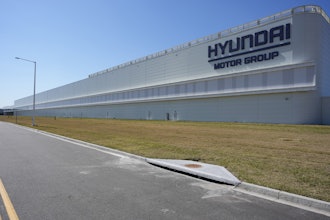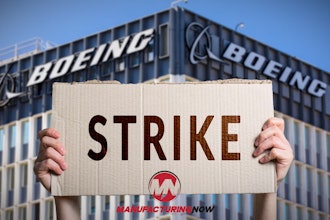
Most (if not all) distribution agreements and other related contracts strive to address and neutralize every possible risk or circumstance that could negatively impact their business. But as diligent and careful as distributors may be, and as comprehensive their documents may be, the world sometimes throws a curveball that no one saw coming, or an event occurs that seemed highly unlikely, if not improbable. The COVID-19 pandemic and its associated lockdowns, supply chain disruptions and other challenges certainly fit that bill. So too do the impact of the current tariff and trade war debacles.
The pandemic’s impact on distributors and almost every other business shined a spotlight on what was, at the time, an oft overlooked but critical part of every distribution agreement (and related contracts): the “force majeure” provision. Derived from the French for “superior force,” these clauses are designed to allocate risk for extraordinary circumstances that prevent performance under the contract.
While COVID may have receded for now, other global commerce uncertainties, such as tariffs, trade wars, supply chain disruptions, bird flu and ever more frequent natural disasters, mean that force majeure provisions are likely to be invoked far more than they were before the pandemic struck, and with similar results.
Accordingly, understanding what these clauses cover – and what they don’t – and carefully drafting them to address all issues of concern is of increasing importance to distributors so they can manage risks and navigate contractual obligations more effectively. For distributors, in particular, recent developments have made two occurrences of particular concern in the context of force majeure provisions: tariffs, resulting impacts on international trade and supply chain disruptions.
Key Components of a Force Majeure Provision
A force majeure clause typically excuses a party from liability or performance obligations when certain unexpected events beyond their control occur. These clauses generally list specific triggering events, such as natural disasters, war, terrorism, government actions, labor strikes and epidemics.
Key components of a force majeure clause include:
Defined Force Majeure Events: The clause should specify events considered force majeure, such as acts of God, government actions and pandemics.
Causation Requirement: The clause should require the affected party to demonstrate that the event directly prevented or hindered contractual performance.
Mitigation Obligations: Affected parties may be required to take reasonable steps to mitigate the impact of the event.
Notice Requirements: The contract should set forth timelines and procedures for notifying the other party of force majeure claims.
Consequences of Invocation: The clause should define whether obligations are suspended, excused or terminated.
Alternative Performance Mechanisms: Distribution agreements should provide alternative sourcing, price adjustments or renegotiation rather than outright nonperformance due to a covered force majeure occurrence.
Courts generally interpret force majeure clauses narrowly, meaning the event in question must be explicitly covered by the contract, a point that pandemic-related litigation made abundantly clear. Parties that attempted to cite the pandemic and its associated fallout to invoke force majeure provisions usually found themselves on the losing side if the applicable provision did not specifically include terms like “epidemics,” “pandemics,” and “public health emergencies,” or “government action” or “regulatory changes” to apply to lockdowns, travel bans, business closures and the like.
Further, courts typically only apply force majeure clauses when the event constituting the force majeure was unforeseeable. Ideally, parties amidst contract negotiations should address potential price increases stemming from uncontrollable factors – tariffs, supply chain disruption or other government action – including by cost adjustment terms in their contracts at the time of contracting.
Force Majeure and Tariffs
The current administration has made tariffs a cornerstone of its economic approach. These government-imposed duties on imported or exported goods can significantly impact distribution agreements. While increased tariffs may raise costs and disrupt supply chains, their classification as a force majeure event that would relieve a party from its contractual obligations depends largely on the clause’s language and interpretation.
For example, a tariff hike imposed suddenly by the administration might qualify as force majeure if the contract explicitly includes “government action” or “changes in law” as triggering events. However, predictable tariff risks, such as those resulting from ongoing trade negotiations or market fluctuations in the context of fixed-price contracts, may not be considered force majeure. It is difficult to know whether a court would find tariffs unforeseeable since the administration has long advocated for increased import tariffs, even campaigning on this promise.
Courts have generally been reluctant to classify tariffs as force majeure unless they render performance impossible rather than merely more expensive or difficult. Thus, distributors should carefully draft force majeure provisions to include government-imposed financial burdens where necessary.
Force Majeure and Supply Chain Disruptions
Global supply chains are vulnerable to a whole host of unexpected disruptions. One container ship stuck in the Suez Canal or a bridge collapse in Baltimore can send shockwaves through markets across the globe. Force majeure clauses can help address these challenges, but as noted, their applicability depends on specific contract language and the nature of the disruption.
Material Shortages and Factory Shutdowns: If a supplier cannot obtain necessary materials due to unexpected plant closures or material unavailability, it may invoke force majeure, provided the clause covers supply chain disruptions.
Transportation and Logistics Issues: Events such as port closures, shipping delays due to labor strikes, and unforeseen regulatory changes can disrupt distribution agreements. Explicitly mentioning transportation failures in force majeure clauses can help parties avoid disputes.
Allocation of Limited Resources: Some contracts require suppliers to allocate limited goods among customers in a fair and commercially reasonable manner when force majeure is invoked.
With force majeure provisions no longer relegated to contractual backwaters, distributors should review and, if necessary, revise their agreements to ensure that they provide protections that are commensurate to the risks posed by a volatile and unpredictable world.
If you have questions or concerns about force majeure provisions, or any other issues covered by this article, please contact me at 312-840-7004 or [email protected].
The information contained in this article is provided for informational purposes only and should not be construed as legal advice on any subject matter. The author expressly disclaims all liability in respect to actions taken or not taken based on any or all the contents of this article.





















